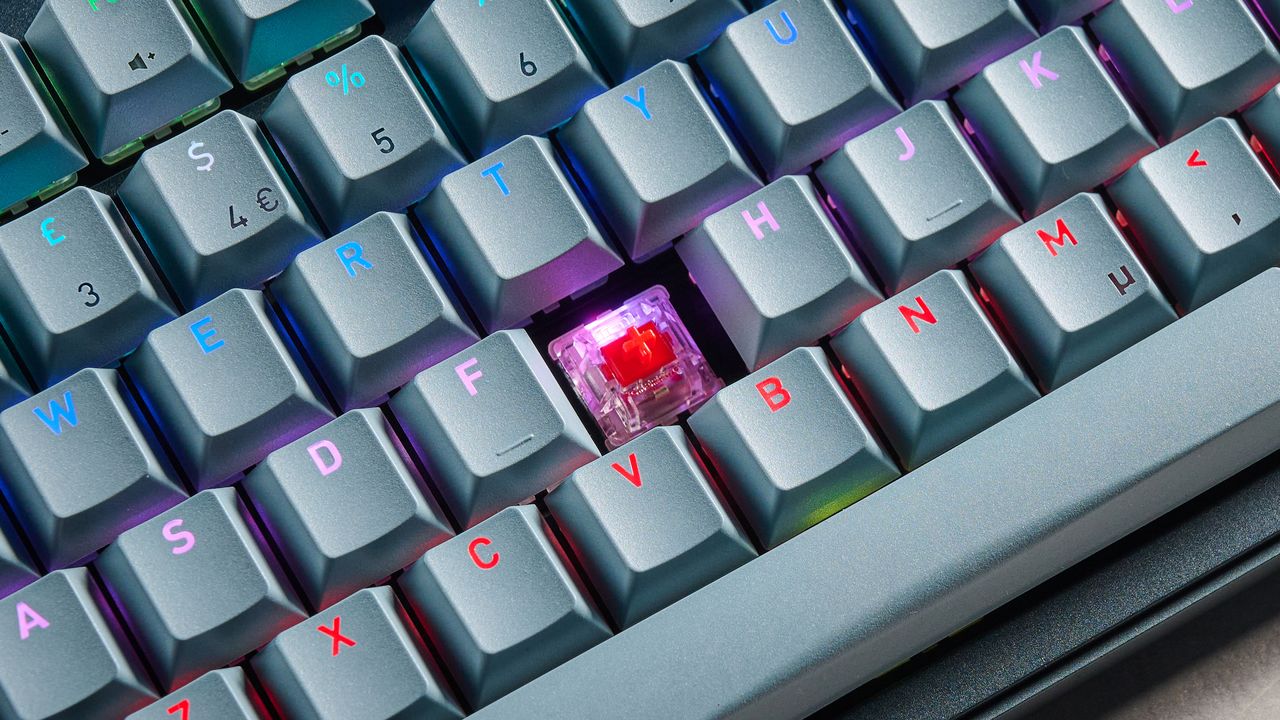Technology
Mechanical Keyboards Fade as Cherry XTRFY MX 8.3 TKL Challenges Norms

Recent trends indicate a significant shift in the gaming keyboard market, with mechanical keyboards facing competition from newer technology. The release of the Cherry XTRFY MX 8.3 TKL Wireless has sparked discussions about the viability of traditional mechanical keyboards, suggesting that their prominence may be waning.
Over the past year, a reviews writer at Tom’s Guide has evaluated nearly 90 keyboards, focusing on various types, including mechanical and magnetic options featuring Hall Effect switches. The conclusion drawn from this extensive testing is striking: magnetic keyboards are becoming the preferred choice for both gamers and typists due to their superior performance and often lower price points.
Performance and Speed: The Magnetic Advantage
The Cherry XTRFY MX 8.3 TKL Wireless boasts impressive specifications, offering a 4,000Hz wireless and 8,000Hz wired polling rate. This high polling rate is crucial for competitive gamers, as it reduces input lag. However, the keyboard’s mechanical switches, specifically the MX2A red switches, may not match the speed and sensitivity of Hall Effect switches, which can be adjusted for quicker actuation.
In practical terms, the mechanical switches of the XTRFY MX 8.3 require 45 grams of force to activate, with a 2mm pre-travel distance. In comparison, Hall Effect switches can be customized to an actuation point as low as 0.1mm, offering gamers a sensitive and responsive experience. The ability to fine-tune actuation distances not only enhances gaming performance but also improves typing speed and accuracy.
Value and Market Competition
Despite its advanced features, the Cherry XTRFY MX 8.3 TKL Wireless comes with a premium price tag of $299 in the United States and the UK. This positioning raises questions about its value compared to other keyboards on the market. For instance, options like the Lemokey L5 HE at $220 and the Wooting 80HE at $199 offer similar or superior specifications at a lower cost. Even more budget-friendly alternatives like the Epomaker HE68 at $59 provide excellent performance for a fraction of the price.
The high price of the Cherry keyboard can be attributed to its build quality and brand reputation, often associated with German engineering. Yet, its performance may not justify the steep cost, especially when competing keyboards provide similar features and enhanced functionality.
While mechanical keyboards still have their enthusiasts, particularly those who appreciate tactile feedback and a distinctive sound profile, the dominance of magnetic keyboards is undeniable. Brands like Keychron continue to produce exceptional mechanical options, including the Keychron V1 and the Keychron Q14 Max, which cater to traditionalists. For gamers, the Corsair K70 Max and SteelSeries Apex Pro Mini remain popular choices that combine performance with user-friendly features.
In conclusion, while the Cherry XTRFY MX 8.3 TKL Wireless showcases impressive specifications, its high price and the rapid growth of magnetic keyboards suggest that mechanical keyboards may be losing their foothold in the market. For users prioritizing performance and affordability, exploring Hall Effect options may be the more sensible choice moving forward.
-

 Technology5 months ago
Technology5 months agoDiscover the Top 10 Calorie Counting Apps of 2025
-

 Health3 months ago
Health3 months agoBella Hadid Shares Health Update After Treatment for Lyme Disease
-

 Health3 months ago
Health3 months agoErin Bates Shares Recovery Update Following Sepsis Complications
-

 Technology4 months ago
Technology4 months agoDiscover How to Reverse Image Search Using ChatGPT Effortlessly
-

 Technology1 month ago
Technology1 month agoDiscover 2025’s Top GPUs for Exceptional 4K Gaming Performance
-

 Technology3 months ago
Technology3 months agoElectric Moto Influencer Surronster Arrested in Tijuana
-

 Technology5 months ago
Technology5 months agoMeta Initiates $60B AI Data Center Expansion, Starting in Ohio
-

 Technology5 months ago
Technology5 months agoRecovering a Suspended TikTok Account: A Step-by-Step Guide
-

 Health4 months ago
Health4 months agoTested: Rab Firewall Mountain Jacket Survives Harsh Conditions
-

 Lifestyle5 months ago
Lifestyle5 months agoBelton Family Reunites After Daughter Survives Hill Country Floods
-

 Health3 months ago
Health3 months agoAnalysts Project Stronger Growth for Apple’s iPhone 17 Lineup
-

 Technology4 months ago
Technology4 months agoHarmonic Launches AI Chatbot App to Transform Mathematical Reasoning





















